Origins of Xiangqi (Chinese Chess) 02: Mythical Hypotheses
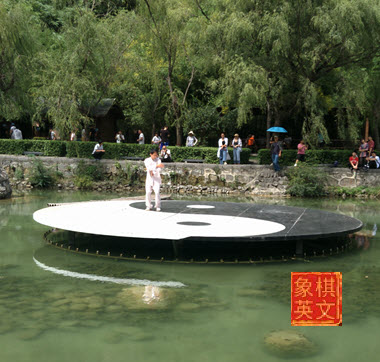 The earliest hypotheses for the origins of Xiangqi (Chinese Chess) were rooted in myths. The period discussed was pre-history or when there was limited texts available. As with other ancient civilizations, the Chinese have their share of fairytales. Concerning the origins of Xiangqi, three hypotheses were related to these myths. They are:
The earliest hypotheses for the origins of Xiangqi (Chinese Chess) were rooted in myths. The period discussed was pre-history or when there was limited texts available. As with other ancient civilizations, the Chinese have their share of fairytales. Concerning the origins of Xiangqi, three hypotheses were related to these myths. They are:
- Hypothesis Number 1: Shennong invented Xiangqi
- Hypothesis Number 2: Huang Di invented Xiangqi
- Hypothesis Number 3: Shun invented Xiangqi
There is much more to these three hypotheses. For example, the hypothesis that Emperor Wu of Northern Zhou invented Xiangqi was based on the principles of Taoism and the I-Ching in particular. While it would be common knowledge to the Chinese, the interested reader might not be familiar with these concepts. The principles of Taoism will also be introduced in this article as it originated from this period.
Note: References to Wikipedia are used in abundance for this article because they represent an acknowledged common translation of the names and events. The Webmaster is in the process of writing a book that is already over 600 pages to date, where more detailed references will be presented.
Contents
- Origins of Xiangqi (Chinese Chess): Mythical Hypothesis.
- The Ancient, Mythical Origins of Xiangqi: Fuxi, Shen Nong, Huang Di, and Shun
- Fuxi, the River Diagram, and the I Ching.
- Shennong invented Xiangqi based on interpreting the stars?
- Huang Di invented Xiangqi when doing battle against Chi You.
- Shun tamed his half-brother, Xiangqi, with Xiangqi
- Summary of the pre-historical hypotheses of the origin of Xiangqi
- References
The Ancient, Mythical Origins of Xiangqi: Fuxi, Shen Nong, Huang Di, and Shun
According to Chinese folklore, Pangu (pronounced as 'pun guu,' 盤古Pán gǔ ) awoke from an 'egg' of chaos and separated the heavens from the earth and allowed for the Yin and Yang to be balanced. (1)
Fuxi, the River Diagram, and the I Ching
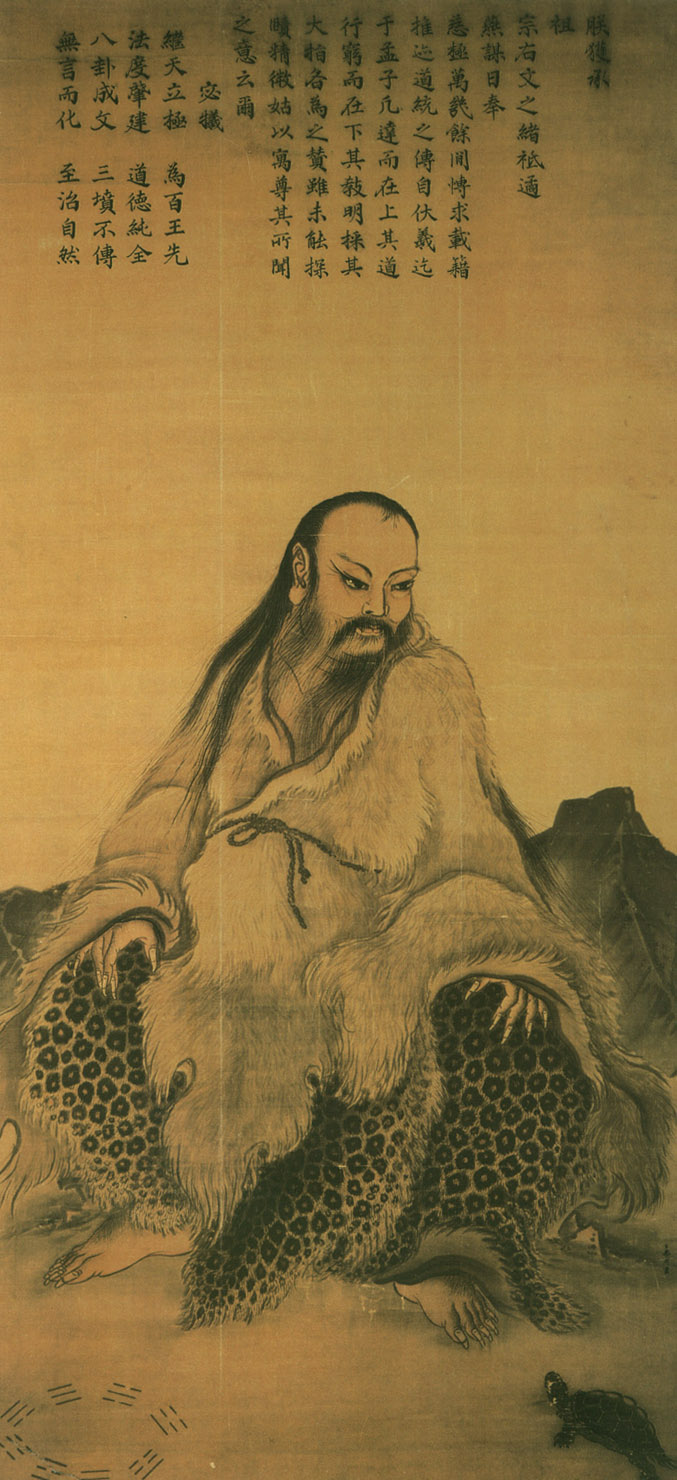
An unknown period passed before Fuxi (伏羲 Fú Xī, pronounced as 'fooxi') appeared, which marked the start of the Three Sovereigns and Five Emperors Period (三皇五帝sān huáng wǔ dì) in the pre-history period of China.
There is some debate over the time frame given. For example, the English version of Wikipedia lists both the period of the Three Sovereigns and Five Emperors as from 2852 – 2070 BC. The Chinese Wikipedia version discusses it as two different periods, with the Period of the Three Sovereigns as around 7000BC to 10000BC. There were other dates given. A more plausible time frame would be 6000BC – 4000BC. As for the Five Emperors Period, it is listed as about 4000BC. There are other accounts of earlier dates that could even be earlier. The discrepancy in the dates would serve as an example of how difficult it was for the early scholars to study the history of Xiangqi.
It is noteworthy to mention that Fuxi is accredited with the I Ching (易经 Yìjīng) or the Book of Changes, which is one of the more commonly used translations in English literature. Fuxi was inspired by the River Diagram (河图), whereby legend has it that a mythical Dragon Horse appeared from the Yellow River with the River Diagram on his back. Fuxi studied the diagram and was enlightened before he wrote the I Ching. He is also believed to have invented the Eight Trigrams, which is derived from the I Ching. Both the I Ching and Eight Trigrams are integral parts of the Chinese culture and the basis of many disciplines like astrology and geomancy. Perhaps the West would be more familiar with Taichi, which is a manifestation of the principles of Yin and Yang. (3) (4) (5)
Why mention Fuxi? It is believed that Weiqi was created based on the principles of Yin and Yang as taught by the I Ching. Xiangqi followed a similar fashion. As for Xiangqi, it is believed that Emperor Wu of Northern Zhou (to be mentioned later) created a game that was based on the I Ching.
Click here for an article that would discuss the I-Ching and the origins of Xiangqi that was translated by the Webmaster.
Shennong invented Xiangqi based on interpreting the stars?
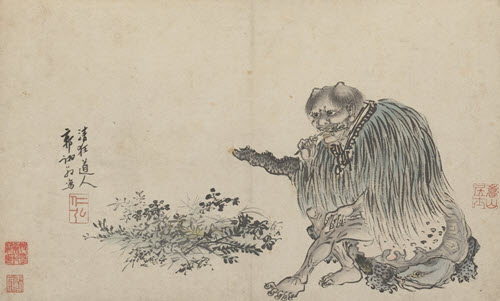 Shennong, (神农 Shén nóng, ? - ? ) is another interesting bit of history. There are several accounts of his identity. Some ancient historical books classify him as one of the Three Sovereigns, calling him Shennong Yan Emperor, while others portray him as one of the Five Emperors. Shennong is revered as a deity. (6) (7)
Shennong, (神农 Shén nóng, ? - ? ) is another interesting bit of history. There are several accounts of his identity. Some ancient historical books classify him as one of the Three Sovereigns, calling him Shennong Yan Emperor, while others portray him as one of the Five Emperors. Shennong is revered as a deity. (6) (7)
Shennong Yan Emperor (炎帝) is well known as the first Emperor of Ancient China, who not only invented the farming tools for his people but also herbs for treating his people's illnesses. The diagram shown above was depicted in a mural painting from the Han dynasty.
![Shennong potrait. From Wikimedia Commons. Wikimedia Commons, the free media repository. [Online] Page Version ID: 327907997, Nov 16, 2018. [Cited: Sep 15, 2020.] Shennong potrait. From Wikimedia Commons. Wikimedia Commons, the free media repository. [Online] Page Version ID: 327907997, Nov 16, 2018. [Cited: Sep 15, 2020.]](/images/History_of_Xiangqi/Shennong2.jpg) The earliest date of the invention of Xiangqi was attributed to Shennong. It was written by a monk called call Nian Chang (念常 niàn cháng) who lived during the Yuan Dynasty (1271 AD – 1368 AD). Nian Chang believed that Shennong created a prototype of Xiangqi, which was later refined by Tang Dynasty Prime Minister Niu Sengru thousands of years later. Shennong's original creation and modification by Niu Sengru would become the form of Xiangqi that we know today.
The earliest date of the invention of Xiangqi was attributed to Shennong. It was written by a monk called call Nian Chang (念常 niàn cháng) who lived during the Yuan Dynasty (1271 AD – 1368 AD). Nian Chang believed that Shennong created a prototype of Xiangqi, which was later refined by Tang Dynasty Prime Minister Niu Sengru thousands of years later. Shennong's original creation and modification by Niu Sengru would become the form of Xiangqi that we know today.
僧 念常 《佛祖历代通载》 二十二卷.
“…制象碁 制象碁〈昔神农以日月星辰为象唐相国牛僧孺用车马将士卒加炮代之为机矣 …” (10)
The author found a simple translation by German historian Peter Banashak:
"In olden times Shennong used the sun (ri 日), the moon (yue 月), the stars (xing 星), and the planets (chen 辰) as symbols (xiang 象); the Tang 唐- Minister of State (xiangguo 相國) Niu Sengru 牛僧孺 used chariots (che 車), horses (ma 馬), scholars (shi 士), soldiers (zu 卒), and catapults (pao 砲) to replace these as utensils in the game." (11)
Note:
象碁 is another way of writing 象棋. 碁 qí, if used alone, would refer to Weiqi, and is also read in the same manner as 棋, which would be the Chinese to refer to chess, generically, and NOT to International Chess.
The validity of the Nian Chang's claim remains contested. However, the concept of Xiangqi having its roots in astrology might not be too farfetched as Weiqi was supposed to have been invented similarly.
As for Shennong, he was also known as the Flame Emperor(炎帝 Yán dì), or the first of a succession of Flame Emperors. The last of the Flame Emperors eventually lost to Huang Di, but they intermarried, and to this day, the Chinese refer to themselves as descendants of the Yan and Huang (炎黄子孙Yán Huáng zǐ sūn). (7)
Huang Di invented Xiangqi when doing battle against Chi You
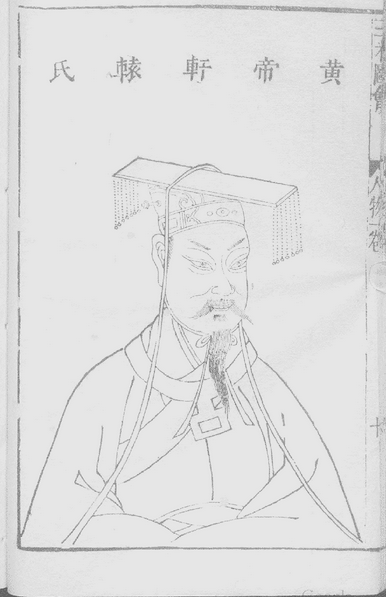 Huang Di (黄帝, c. 2717BC – c 2599?) is also known by many names, including the Yellow Emperor, Gongsun Xuanyuan (公孙轩辕 gōng sūn xuān yuán), or simply Xuan Yuan (轩辕 xuān yuán). The dates given for his birth and death are similar in both the English and Chinese version of Wikipedia and reflects the age given in other texts.
Huang Di (黄帝, c. 2717BC – c 2599?) is also known by many names, including the Yellow Emperor, Gongsun Xuanyuan (公孙轩辕 gōng sūn xuān yuán), or simply Xuan Yuan (轩辕 xuān yuán). The dates given for his birth and death are similar in both the English and Chinese version of Wikipedia and reflects the age given in other texts.
Note: '黄帝' is NOT to be mistaken for '皇帝' whereby the same pronunciation is used for both, but the latter would be the Chinese for 'emperor.' (12) (13)
The hypothesis that Huang Di invented Xiangqi was suggested by a scholar from the Ming Dynasty called Chao Buzhi (晁补之 Cháo bǔ zhī 1053-1110AD).
(明)晁补之《广象戏格.序》∶ “象戏兵戏也,黄帝之战驱猛兽以为阵。象,兽之雄也,故戏兵以象戏名之。”
Chao wrote (Jim's translation):
"The Game of the Elephant is a game of war and strategy. It was invented by Huang Di when he used various formations that employed fearsome beasts. The Elephant was the king of the beasts, and that was why the war game was called Xiang Xi."
Note:
a) Xiangxi (象戏 xiàng xì) was used instead of Xiangqi. The second Chinese character is the Chinese for 'game.' Hence Xiangxi can be translated as the Game of the Elephant. Xiangxi would be another way to refer to Xiangqi.
b) Huang Di was battling his arch-nemesis Chi You (蚩尤 chī yóu) when he employed various formations using animals. The Elephant is mentioned here, proving that the ELEPHANTS HAD ALREADY EXISTED IN CHINA DURING HUANG DI'S TIME. One of the most frequent arguments that early Western scholars used to preach was that India had Elephants while China did not. Therefore, the Elephant Game must have been invented in a country where Elephants could be found. It would follow that India was the more probable candidate for inventing Xiangqi.
Elephants had already been mentioned by several individual writings in various history books like the Records of the Grand Historian et cetera. The Chinese character 豫 yù, was created as a man herding an elephant. 豫 has many meanings, but incidentally, one of its usages was to represent the Henan Province in China, where the Chu-Han Contention took place. The same Chinese character could also refer to Elephant, and also one of the divinations in the I Ching.
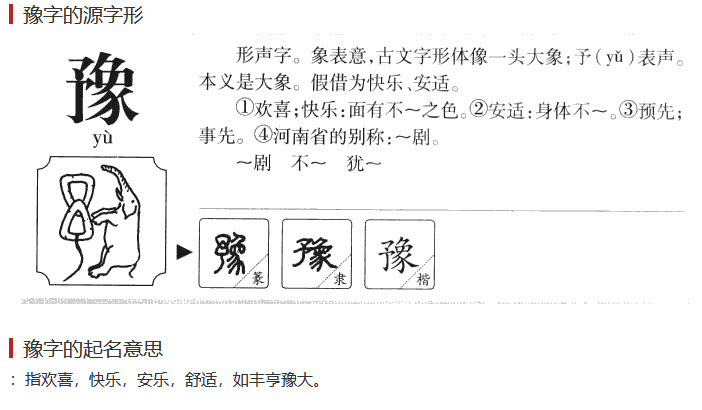 Diagram reproduced from 起名网. (14)
Diagram reproduced from 起名网. (14)
Shun tamed his half-brother, Xiangqi, with Xiangqi
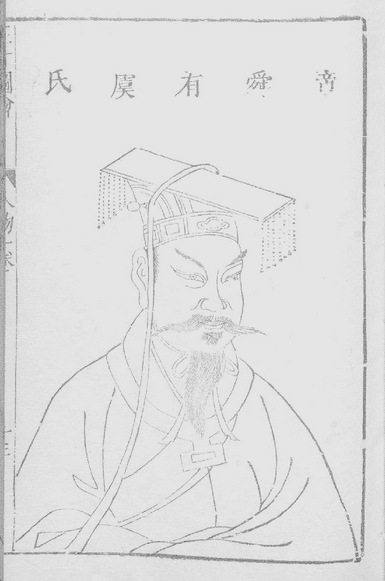 Another ancient hypothesis about the ancient origins of Xiangqi referred to Yu Shun (虞舜 Yú Shùn, ? - ?), who was also known as Shun (舜 shun, pronounced "shoon"). Shun was another one of the Five Emperors, as mentioned above, and he lived centuries after Huang Di. Shun had a half-brother called Xiang (象 xiàng). (15)
Another ancient hypothesis about the ancient origins of Xiangqi referred to Yu Shun (虞舜 Yú Shùn, ? - ?), who was also known as Shun (舜 shun, pronounced "shoon"). Shun was another one of the Five Emperors, as mentioned above, and he lived centuries after Huang Di. Shun had a half-brother called Xiang (象 xiàng). (15)
In a nutshell, Xiang was said to be unruly and had violent conduct, which was why Shun imprisoned him. A game was invented by Shun to provide leisure for his half-brother during this time of imprisonment. It was also Shun's hope that the game would be able to calm Xiang down. As Shun created it for his brother Xiang, Shun called it Xiangqi.
This hypothesis was presented in Zhou Jiasen's book Xiangqi, and Xiangqi Sayings(《象棋史话》 xiàng qí shǐ huà, )which is given below. It was also mentioned in other books and dissertations. Perhaps the most notable mention would be Chang Renxia (常任侠 chángrèn xiá 1904-1996).
周家森 《象棋源流考》 (16 p. 1):
"唐尧作围棋以教丹朱,虞舜作象棋以教商均,窃疑为以教弟象故曰:象棋。(约在公元以前二三一五至二二零四年之间下仿此)
Webmaster's translation:
"Tang Yao (唐尧 Táng Yáo) invented Weiqi to teach Dan Zhu (丹朱), while Yu Shun (虞舜Yú Shùn) created Xiangqi to teach Shang Jun (商均 shāng jūn). As the game was made for his brother Xiang, it was called Xiangqi. (c.2315-2204 BC)”
Zhou Jiasen mentioned not only the inventor of Xiangqi but also the inventor of Weiqi. To this day, Dan Zhu is a name tied to Weiqi, and there are many Weiqi schools in China using the name. As for Zhou Jiasen, for those who do not know, he was one of the Xiangqi historians that China produced in the last century. In his book Xiangqi and Xiangqi Sayings, he listed over thirty hypotheses collected from the ancient encyclopedias and books. His book remains one of the most important books on Xiangqi history to date.
Summary of the pre-historical hypotheses of the origin of Xiangqi
As can be seen, the three pre-historical hypotheses of Xiangqi are probably more myth than fact. There were only sporadic mention and inadequate material to substantiate the claims. However, they might have other influences on the origins of Xiangqi. Fuxi's I-Ching laid the foundations for Taoism and there are a few hypotheses that are related to the I-Ching. Nevertheless, the Webmaster believes that the introduction of these three hypotheses would serve to introduce the rich culture and history of the Chinese.
References
1. contributors, Wikipedia. Pangu. Wikipedia, The Free Encyclopedia. [Online] Page Version ID: 926219973, Sep 14, 2019. [Cited: Sep 15, 2020.] https://en.wikipedia.org/w/index.php?title=Pangu&oldid=926219973.
2. contributors, Wikimedia Commons. File:Ma-Lin-Fuxi-and-turtle.jpg. Wikimedia Commons, the free media repository. [Online] Page Version ID: 379765286, Dec 10, 2019. [Cited: Sep 15, 2020.] https://commons.wikimedia.org/w/index.php?title=File:Ma-Lin-Fuxi-and-turtle.jpg&oldid=379765286.
3. contributors, Wikipedia. Fuxi. Wikipedia, The Free Encyclopedia. [Online] Page Version ID: 976550956, Sep 3, 2020. [Cited: Sep 15, 2020.] https://en.wikipedia.org/w/index.php?title=Fuxi&oldid=976550956.
4. —. Three Sovereigns and Five Emperors. Wikipedia, The Free Encyclopedia. [Online] Page Version ID: 975204377, Aug 27, 2020. [Cited: Sep 15, 2020.] https://en.wikipedia.org/w/index.php?title=Three_Sovereigns_and_Five_Emperors&oldid=975204377.
5. 维基百科编者. 三皇五帝. 维基百科,自由的百科全書. [Online] Jan 2, 2020. [Cited: Jan 11, 2020.] 条目版本编号:57537620. https://zh.wikipedia.org/w/index.php?title=%E4%B8%89%E7%9A%87%E4%BA%94%E5%B8%9D&oldid=57537620.
6. contributors, Wikipedia. Shennong. Wikipedia, The Free Encyclopedia. [Online] Aug 10, 2020. [Cited: Sep 15, 2020.] https://en.wikipedia.org/w/index.php?title=Shennong&oldid=972157430. Page Version ID: 972157430.
7. —. Yan Emperor. Wikipedia, The Free Encyclopedia. [Online] Page Version ID: 971411303, Aug 6, 2020. [Cited: Sep 15, 2020.] https://en.wikipedia.org/w/index.php?title=Yan_Emperor&oldid=971411303.
8. contributors, Wikimedia Commons. File:Guo Xu album dated 1503 (2).jpg. Wikimedia Commons, the free media repository. [Online] Page Version ID: 389993433, Jan 25, 2020. [Cited: Sep 15, 2020.] https://commons.wikimedia.org/w/index.php?title=File:Guo_Xu_album_dated_1503_(2).jpg&oldid=389993433.
9. —. File:Shennong2.jpg. Wikimedia Commons, the free media repository. [Online] Page Version ID: 327907997, Nov 16, 2018. [Cited: Sep 15, 2020.] https://commons.wikimedia.org/w/index.php?title=File:Shennong2.jpg&oldid=327907997.
10. Wikisource贡献者. 佛祖厯代通載 (四庫全書本)/卷16. Wikisource,。. [Online] 页面版本ID:762944, Oct 24, 2016. [Cited: Mar 15, 2020.] -{R|https://zh.wikisource.org/w/index.php?title=%E4%BD%9B%E7%A5%96%E5%8E%AF%E4%BB%A3%E9%80%9A%E8%BC%89_(%E5%9B%9B%E5%BA%AB%E5%85%A8%E6%9B%B8%E6%9C%AC)/%E5%8D%B716&oldid=762944}-.
11. Banaschak, Peter. FACTS ON THE ORIGIN OF CHINESE CHESS (XIANGQI 象棋). http://www.banaschak.net/. [Online] No date given. [Cited: Mar 15, 2020.]
12. 维基百科编者. 黄帝. 维基百科,自由的百科全書. [联机] 条目版本编号:56431229, 2019年Oct月11日. [引用日期: 2020年Sep月15日.] https://zh.wikipedia.org/w/index.php?title=%E9%BB%84%E5%B8%9D&oldid=56431229.
13. contributors, Wikipedia. Yellow Emperor. Wikipedia, The Free Encyclopedia. [Online] Page Version ID: 978008137, Sep 12, 2020. [Cited: Sep 15, 2020.] https://en.wikipedia.org/w/index.php?title=Yellow_Emperor&oldid=978008137.
14. 豫. 起名网。康熙字典. [联机] [引用日期: 2020年Sep月16日.] https://www.yw11.com/zidian/16929/.
15. contributors, Wikipedia. Emperor Shun. Wikipedia, The Free Encyclopedia. [Online] Page Version ID: 972074726, Aug 10, 2020. [Cited: Sep 16, 2020.] https://en.wikipedia.org/w/index.php?title=Emperor_Shun&oldid=972074726.
16. 周, 家森. 象棋与棋话 第三版. s.l. : 世界书局印行, 1947, 民国36年. No ISBN.
